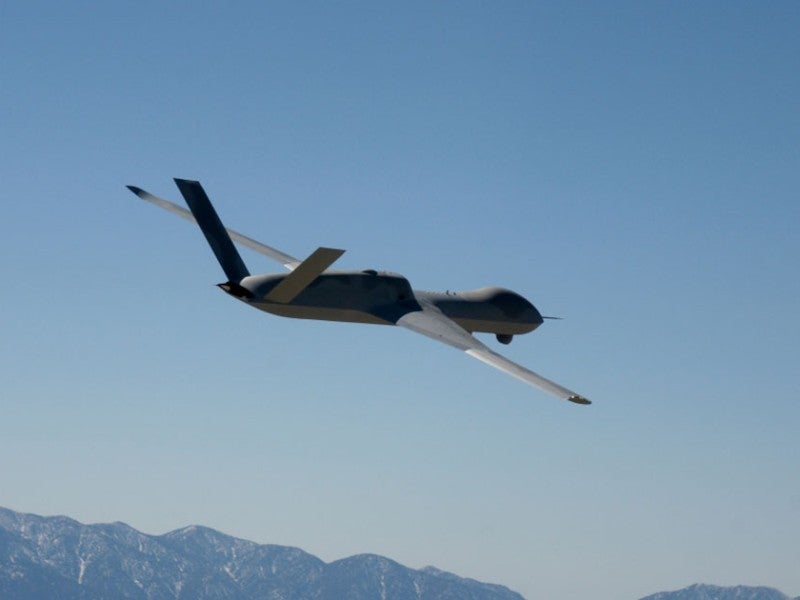
General Atomics Aeronautical Systems (GA-ASI) has recently conducted another flight test to demonstrate the capability of its Autonomous Collaborative Platform (ACP) mission system.
The test was carried out from GA-ASI’s Desert Horizons flight operations facility in El Mirage, California, US, on 14 December 2022.
This marks another achievement in the company’s efforts to mature its Collaborative Combat Aircraft (CCA) ecosystem to support ACP uncrewed aircraft system (UAS), using artificial intelligence (AI) and machine learning (ML).
The initiative aims to provide advanced tools for next-generation military aircraft, allowing them to take critical decisions under unpredictable real-world scenarios.
The latest demonstration involved three different missions featuring AI pilots on an Open Mission System (OMS) software stack, along with GA-ASI-built Avenger UAS.
The test required Avenger to autonomously perform multi-objective live, virtual and constructive (LVC) combat missions while being integrated with a ‘digital twin’ aircraft.
How well do you really know your competitors?
Access the most comprehensive Company Profiles on the market, powered by GlobalData. Save hours of research. Gain competitive edge.

Thank you!
Your download email will arrive shortly
Not ready to buy yet? Download a free sample
We are confident about the unique quality of our Company Profiles. However, we want you to make the most beneficial decision for your business, so we offer a free sample that you can download by submitting the below form
By GlobalDataDuring the test flight, the company used reinforcement learning (RL) capability to produce and assess three RL algorithms in an operational scenario.
GA-ASI said that the RL agents determined the behaviours of multi, single and hierarchical agents.
The single RL agent navigated a live plane and accomplished the mission by avoiding threats while multi-agent RL models collaboratively operated a live and virtual Avenger to track a target.
Meanwhile, the hierarchical agent used sensor data to choose different courses of action depending on the scenario.
All three models successfully demonstrated the AI pilot’s capability to complete missions by processing and utilising real-time information without human-operator involvement.
GA-ASI Advanced Programmes senior director Michael Atwood said: “The combination of airborne high-performance computing, sensor fusion, human-machine teaming and AI pilots making decisions at the speed of relevance shows how quickly GA-ASI’s capabilities are maturing as we move to operationalise autonomy for CCAs.”



